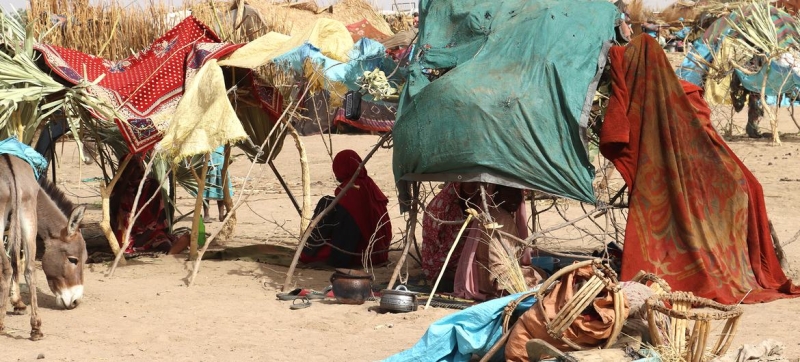
Thousands of refugees cross the border into Chad every day to escape violence in Sudan. Reports of conflict-related sexual violence up 50 percent Women
More than 60 million women and girls who are displaced or stateless worldwide are at high risk of gender-based violence, yet funding for vital services to support them is woefully inadequate, the UN High Commissioner for Refugees (UNHCR) warned on Friday.
According to the UN, reports of conflict-related sexual violence increased by 50 percent last year compared with the previous year, with women and girls accounting for 95 percent of confirmed cases. However, these figures do not tell the whole story, as many incidents go unreported.
Aid Limited
“In many remote areas, humanitarian access is blocked and resources are severely limited. Access to legal aid also remains limited, with survivors fearing reprisals and social marginalization,” UNHCR spokesperson Shabia Mantoo told reporters in Geneva.
In the Democratic Republic of Congo (DRC), the bodies of women and girls have become “an extension of the battlefield,” amid cyclical violence and worsening security, including in displacement settings, she said. Reports of gender-based violence have also increased in the DRC this year, with the majority of crimes involving rape. In Chad, women seeking refuge from conflict in Sudan have also reported rape.
“In Afghanistan, increased restrictions on women and girls, high levels of domestic violence and a generally worsening economic situation are contributing to a growing mental health crisis, with UNHCR partners reporting an increase in the number of patients seeking assistance,” said Shabia Mantoux.
Dangers on the road
Refugee and migrant women crossing the Mediterranean continue to report facing sexual violence and exploitation, enslavement and trafficking. Humanitarian agencies estimate that 90 per cent have been raped.
“In addition to conflict-related sexual violence, displaced women and girls are also at high risk of intimate partner violence. “In some cases, their risk is estimated to be 20 per cent higher than that of non-displaced women and girls,” Mantoux said.
Different forms of discrimination also increase risks, including for women and girls with disabilities, living in poverty or living with different sexual orientations, gender identities and expressions, the UNHCR representative added.
Lack of funding
Preventive measures to prevent and respond to gender-based violence in displacement and conflict situations do save lives, but funding for this area lags far behind needs, Mantoux said.
“The six core regional response plans covering the humanitarian needs of refugees from the DRC, Afghanistan, Sudan, Ukraine, South Sudan and Syria are currently only 28 per cent funded,” she said.
UNHCR is highlighting the issue during the annual global campaign 16 Days of Activism against Gender-Based Violence, which runs until 10 December. UNHCR fears that without adequate funding, millions of displaced women and girls will not be able to access essential services next year.
